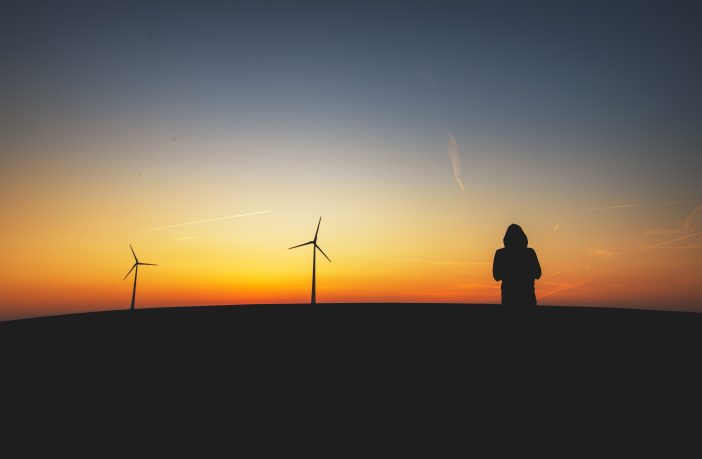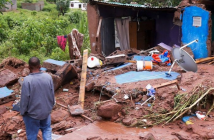Opinion
I was privileged to have been a part of the team advising the Independent Power Production (IPP) Office back in 2011 before the Renewable Energy Independent Power Producer Procurement Programme (REIPPPP) was launched, and I remember the anxiety that existed around whether many bidders would sign up to participate in the programme. Since then, we have witnessed in excess of 100 large scale renewable energy projects successfully procured under five bidding rounds of REIPPPP (including bid window 3.5) featuring significant tariff reductions from round to round.
How did this happen? In my view, it was because South Africa created a clear procurement plan in the form of the Integrated Resource Plan (IRP) 2010, making provision for the procurement of 17,800 MW of electricity from renewable energy sources by 2030.
Second, the South African government created a well-designed and transparent procurement process with key risks mitigated by government and third, the forces of a competitive market exerted on the sponsors of and lenders to these projects and on providers of key inputs into these projects have led to significant price reductions as the bidding rounds have progressed.
We also witnessed how the IPP procurement programmes have the potential to unlock significant social and economic development and can therefore be a very powerful tool for government to achieve its policy objectives of job creation and energy security for the people of South Africa, assuming we create the right conditions for a just transition from a coal based economy to one with a diversified energy mix.
There have been strong expressions of opposition to renewable energy IPPs from various quarters in South Africa. But the need for a flourishing IPP sector in South Africa is underpinned by the latest round of rolling Eskom power black-outs and the prospects of further supply-side constraints with approximately 12GW of Eskom’s coal-fired power plants due for decommissioning between now and 2030. In addition, more than ever, South Africa needs to consider its commitment to the reduction of green-house gas and carbon emissions.
Winds of change
After a nearly three year hiatus in the programme, in April 2018, Eskom entered into the power purchase agreements for 27 large scale renewable energy projects procured in round 4 of REIPPPP. President Ramaphosa has stated that he aims to create US$100bn of inward investment during his term of office, and Energy Minister Radebe aims for a quarter of that to be in the energy sector. These are powerful and positive signals to international investors in the programme and in South Africa.
But there remain a number of factors that are causing international investors concern and which need to be clearly addressed.
Top of mind is Eskom’s sustainability. S&P Global Ratings has recently revised its outlook on Eskom’s CCC+ rating from negative to stable off the back of the Minister of Finance’s recent budget speech in which he announced a R69bn funding support package over three years. This package is designed to help stabilise Eskom’s excessive debt-service burden, in conjunction with aggressive cost-cutting commitments and the appointment of a chief reorganisation officer. President Ramaphosa also announced in his recent state of the nation address that Eskom is to be unbundled into three separate businesses: generation, transmission and distribution, to allow for greater transparency and competition in the electricity market. South Africa would, in my view, need broader market reform in order to realise these objectives, including having an entity other than Eskom as the purchaser of privately produced power.
Trade unions have strongly opposed the restructuring of Eskom, and this opposition will need to be carefully addressed. Key to addressing trade union concerns will be a well thought-out and widely adopted strategy to achieving a just transition from a coal intensive economy to a low carbon, climate resilient economy and society. This means adopting policies, possibly involving financial and tax incentives and coordinated education and training programmes, that will meaningfully protect the livelihoods of workers through the transition.
A second important consideration for investors underpinning their need for policy certainty would be the timing and content of the updated Integrated Resource Plan, the long term plan for South Africa’s electricity procurement which is meant to be updated every two years. The current version of the plan is dated 2010. After years of debate around this updated plan, in August 2018, the Department of Energy published the Integrated Resource Plan 2018 for comment.
IPPs will be looking to see whether the commissioning date for new renewables will be brought forward from 2025, and whether the annual allocation for large scale corporate power purchase agreements will be increased. Municipalities are also lobbying to be allowed to procure power directly from IPPs. The Minister of Energy has indicated that the final version will be adopted soon, after processes at NEDLAC and Cabinet have been completed.
These processes are already quite delayed. Once the updated IRP has been published, the investor community will be keenly awaiting the request for proposals for round 5 of REIPPPP. It is widely expected that the Department of Energy will amend the provisions of the request for proposals relating to economic development and co-benefits, while investors have expressed the hope that government will take care not entirely to reinvent the wheel in relation to a highly successful programme.
Investors in the Coal Baseload IPP Procurement Programme will also be keenly awaiting confirmation of an allocation in the updated IRP for their projects – two projects were awarded to preferred bidders in October 2016 but have failed to reach financial close because of a combination of factors including pressure from environmental groups and lender attrition.
A third important consideration for investors will be whether government will seek to renegotiate power purchase agreements with IPPs from the first two rounds of REIPPPP, as Minister of Public Enterprises, Pravin Gordhan indicated in a recent Parliamentary Portfolio Committee meeting. Minster Radebe has subsequently indicated that government has no intention of renegotiating these power purchase agreements but indicated that refinancing the projects to reduce the cost of the plants would be welcome. Providing policy certainty to investors through reinforcing Minister Radebe’s message will be key to encouraging investors to look to South Africa.
Boosting investor confidence
The importance of the new IRP to investor confidence cannot be understated. It goes back to the lessons learned through the hiatus in the IPP programmes in the past three years. Investors will be looking for policy certainty in the new IRP and the optimal lowest cost energy procurement trajectory for the country in order to invest – in projects, in the manufacture of inputs and in the provision of services that go into these projects. Investors will want a clear RFP for Round 5 that does not re-invent the wheel and breach the boundaries of bankability but creates a path that all interested parties can travel together. Investors also have a keen interest in the just transition to a low carbon, climate resilient economy and society and should be prepared to partner with government and labour in achieving this.
Author: Jason van der Poel
Jason is a partner at Allen and Overy, a global law firm offering legal services to the energy sector among others. Get in touch: Samantha.VanWyk@AllenOvery.com
Disclaimer: The opinion articles expressed in this publication are those of the authors. They do not purport to reflect the opinions or views of Green Building Africa or our staff. The designations employed in this publication and the presentation of material therein do not imply the expression of any opinion whatsoever on the part Green Building Africa concerning the legal status of any country, area or territory or of its authorities.















